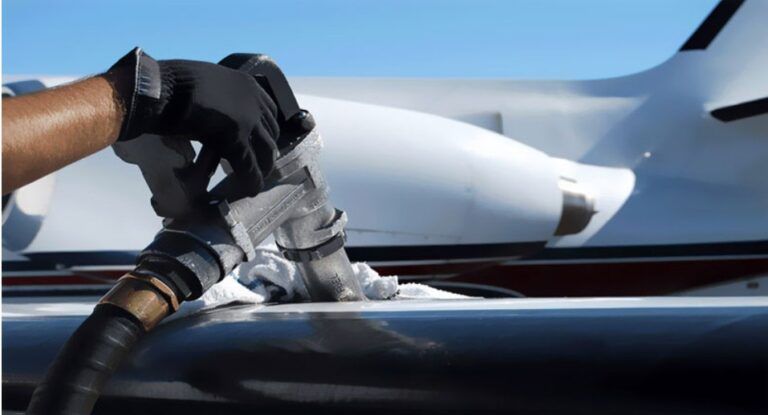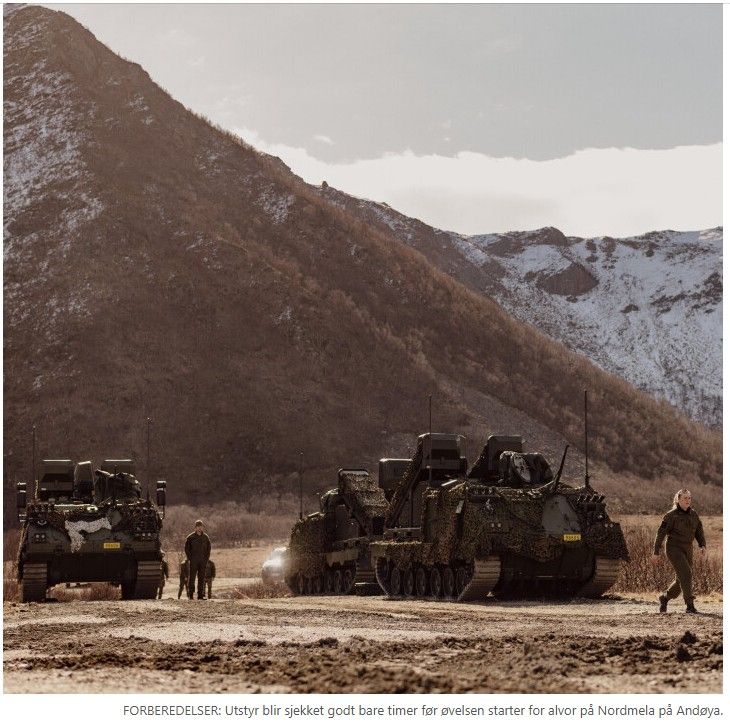TO: Committee on Oversight and Accountability Majority Members FROM: Committee on Oversight and Accountability Majority Staff DATE: May 10, 2023 RE: Second Bank Records Memorandum from the Oversight Committee’s Investigation into the Biden Family’s Influence Peddling and Business Schemes
To inform Majority Members of developments in the Committee on Oversight and Accountability’s (Committee) investigation of the President’s role in his family members’ and business associates’ foreign and domestic business practices, Committee staff is providing this memorandum (Second Bank Records Memorandum). On March 16, 2023, the Committee issued its first memorandum related to bank records (First Bank Records Memorandum).1 This Second Bank Records Memorandum expands on information the Committee recently received from subpoena returns and, additionally, serves as a response to misinformation spread by the President, Minority Members, and their allies regarding the contents of the First Bank Records Memorandum. The Committee has subpoenaed four different banks and received thousands of records in response. The Committee’s bank subpoenas were tailored to specific individuals and companies that engaged in business activities with Biden family members and their business associates. Committee staff will continue to release memoranda to Majority Members as new information is uncovered. 1 Memorandum (Mar. 16, 2023), H. Comm. on Oversight & Accountability. From Maj. Comm. staff to Comm. Members. Re: New Evidence Resulting from the Oversight Committee’s Investigation into the Biden Family’s Influence Peddling and Business Schemes. 2 Summary Lack of Transparency Regarding the Biden Family Business Deals: When President Biden ran as a presidential candidate, he assured the American people his family received no money from China. President Biden recently claimed the Committee’s bank records regarding his family’s receipt of funds from China are “not true.” The White House refuses to correct President Biden’s dishonest statements. The lack of transparency surrounding the Biden family’s foreign business deals raises serious national security concerns. The Committee has Reviewed Thousands of Bank Records: The Committee has obtained thousands of relevant bank records via subpoenas. The Complicated Network of Biden Family and Associates’ Companies: Biden family members and business associates created a web of over 20 companies—most were limited liability companies formed during Joe Biden’s vice presidency. The Biden Family Received Millions of Dollars from Foreign Sources: Bank records show the Biden family, their business associates, and their companies received over $10 million from foreign nationals’ companies. The Committee has identified payments to Biden family members from foreign companies while Joe Biden served as Vice President and after he left public office. The Biden Family Used Business Associates’ Companies to Receive Foreign Funds: Despite creating many companies after Vice President Biden took office, the Biden family used business associates’ companies to receive millions of dollars from foreign companies. Attempts to Conceal Large Financial Transactions: After foreign companies sent money to business associates’ companies, the Biden family received incremental payments over time to different bank accounts. These complicated financial transactions appear to conceal the source of the funds and reduce the conspicuousness of the total amounts made into the Biden bank accounts. Chinese Nationals Hid the Source of the Money: Chinese nationals and companies with significant ties to Chinese intelligence and the Chinese Communist Party hid the source of the funds by layering domestic limited liability companies. The Number of Biden Family Members: As the Committee traces additional financial transactions, the Committee continues to identify new Biden family members who may have benefited financially from the foreign companies.
The Committee has uncovered evidence indicative of influence peddling and financial deception warranting further investigation and legislative solutions. The bank records and financial transactions are discussed in detail below in Sections E-G. Congressional investigations are rooted in the legislative process, and Congress may use its broad powers to achieve legitimate legislative aims. A federal district court recently explained the important role of Congressional subpoenas: Congressional committees have constitutional authority to conduct investigations and issue subpoenas because “each House has power ‘to secure needed information’ in order to legislate.” Trump v. Mazars USA, LLP, 140 S. Ct. 2019, 2031 (2020) (quoting McGrain v. Daugherty, 273 U.S. 135, 161 (1927)); see Eastland v. U.S. Servicemen’s Fund, 421 U.S. 491, 504 (1975). This “power of inquiry—with process to enforce it—is an essential and appropriate auxiliary to the legislative function.” McGrain, 273 U.S. at 174 (emphasis added). “The power of the Congress to conduct investigations is inherent in the legislative process.” Watkins v. United States, 354 U.S. 178, 187 (1957).2 Congress can conduct investigations to pass laws that will bring transparency to the American people, thwart public corruption, and reduce influence peddling. Indeed, the Committee is charged with the responsibility of rooting out waste, fraud, and abuse. Public corruption, influence peddling, federal ethics laws, financial disclosures, and national security matters are directly within the purview of the Committee’s oversight responsibilities. This memorandum highlights some of the legislative issues the Committee is deeply concerned about based on the information reviewed thus far.

The Committee seeks to craft legislative solutions aimed at deficiencies it has identified in the current legal framework regarding ethics laws and disclosure of financial interests related to the immediate family members of Vice Presidents and Presidents—deficiencies that may place American national security and interests at risk. The Committee is concerned that foreign nationals, including individuals with ties to the Chinese Communist Party (CCP), have sought access and influence by engaging in lucrative business relationships with highprofile political figures’ immediate family members, including members of the Biden family. The Committee is investigating the national security implications of a Vice President’s or President’s (and candidates for such offices) immediate family members receiving millions of dollars from foreign nationals, foreign companies, or foreign governments without any oversight. Current financial disclosure laws and regulations do not require non-dependent family members of senior elected officials to provide any information to the public. The Committee is seeking meaningful reforms to government ethics and disclosure laws that will provide necessary transparency into a Vice President’s or President’s immediate family members’ income, assets, and financial relationships. The Committee intends to craft legislation that would strengthen reporting requirements related to certain foreign transactions involving senior elected officials’ family members and that would implement robust financial disclosure requirements that shed light on ownership of opaque corporate entities. Moreover, in order to prevent financial transactions from being structured in a way to evade oversight, the Committee is examining whether certain reporting requirements, including any new reporting requirements for senior elected officials’ family members, should extend for a period of time after a President or Vice President leaves office. The Committee also seeks to strengthen the Bank Secrecy Act and anti-money laundering laws by analyzing whether financial institutions have the available tools and support from federal agencies to thwart illegal money laundering and foreign corruption activity. The Committee is evaluating whether Suspicious Activity Reports generated by personal and corporate bank accounts associated with a Vice President’s or President’s immediate family members should undergo a more rigorous banking compliance process, receive an expedited review by law enforcement without undue influence by political appointees, and be disclosed to Congress, under certain circumstances, given potential political corruption and risks to our national security. The Committee aims to draft legislation that delivers more transparency to the American people, deters foreign interests from attempting to obtain influence over and access to the highest levels of the federal government by entering into business deals with presidential and vice-presidential family members, discourage such family members from capitalizing on their relatives’ public service, and ensure the nation is safe from foreign adversaries.

On October 22, 2020, President Biden (then a presidential nominee) stood before the American people at a televised presidential debate and answered a question about whether there was anything inappropriate or unethical about his son’s business dealings in Ukraine or China. President Biden denied that his son or anybody else from his family received money from China and stated: My son has not made money in terms of this thing about, what are you talking about, China. I have not had—The only guy who made money from China is this guy [Donald Trump]. He’s the only one. Nobody else has made money from China.3 The bank records refute President Biden’s statement. To date, President Biden has continued to deny that his family received money from China—despite bank records proving otherwise. In 2017 alone, bank records show President Biden’s family and their related companies received millions of dollars from Chinese foreign nationals’ companies. This amount does not include payments from Ukraine, Kazakhstan, Mexico, Romania, Oman, or other foreign business deals the Committee is investigating; it also does not include any payments related to Hunter Biden‘s interest in BHR Partners or Jonathan Li. On March 16, 2023, the Committee issued the First Bank Records Memorandum.4 In response to a reporter’s question regarding the over $1 million paid to the Biden family from a Chinese company, President Biden claimed, “That’s not true.”5 On March 21, 2023, the Committee requested Press Secretary Karine Jean-Pierre either correct President Biden’s false assertion or explain any inaccuracies in the Committee’s evidence.6 Ms. Jean-Pierre and the White House have failed to do either. Because President Biden has denied the existence of the evidence, the Committee has included redacted copies of certain bank records in this Second Bank Records Memorandum. Federal district courts across the country routinely admit bank records as evidence in criminal and civil trials. Any claim these documents are unreliable is false, misleading, and contradicts the federal rules of evidence.
3 John McCormack, Biden at Last Presidential Debate: ‘My Son Has Not Made Money’ from China, Nat’l Review (Dec. 10, 2020) (emphasis added). 4 Supra, fn. 1. 5 Chris Pandolfo, Biden denies $1M in payments to family from Hunter associate, despite bank records: ‘Not true’, Fox News (Mar. 18, 2023). 6 Letter from Hon. James Comer, Chairman, H. Comm. on Oversight & Accountability, to Ms. Karine Jean-Pierre, White House Press Secretary (Mar. 21, 2023).
Because President Biden is not required to file financial disclosures for immediate family members (other than a spouse or dependents), this gaping legislative hole has allowed President Biden to make misleading statements about the source of his family’s income, act willfully blind about their finances notwithstanding potential conflicts of interest, and use federal government resources and personnel—including White House spokespersons—to conceal influence peddling.

The Committee is investigating the opaque corporate structure of particular Biden-affiliated companies, those companies’ complicated connections with each other, whether these companies maintained books and records, and why certain foreign nationals sought to partner with and engage in businesses with specific Biden family members and their companies. The Bidens and their business associates formed a series of companies in a relatively short amount of time; the overwhelming majority were created during Joe Biden’s vice presidency. The Committee has identified over 20 companies affiliated with certain Biden family members and their business associates, formed mostly in Delaware and Washington, D.C. The services provided by some of these companies, the purpose for creating such a complicated corporate structure, and whether ethics/financial disclosure laws should require a public official to publicly disclose the identities of such companies remain under scrutiny by the Committee. After assuming the vice presidency in 2009, records reveal Hunter Biden and his business associates formed at least 15 companies. The chart on the following page shows some of the entities and their respective formation date the Committee is currently investigating
:7 [PAGE INTENTIONALLY LEFT BLANK]
Name Formation Date Lion Hall Group, LLC5/26/1998 Owasco P.C.1/19/2006 Robinson Walker, LLC 2/28/2008 Skaneateles, LLC7/18/2008 Seneca Global Advisors, LLC 8/12/2008 Rosemont Seneca Partners, LLC6/25/2009 Rosemont Seneca Principal Investments, LLC7/29/2009 Rosemont Realty, LLC2/12/2010 Rosemont Seneca Global Risk Services, LLC10/4/2010 RSP Holdings, LLC9/15/2011 Rosemont Seneca Technology Partners, LLC10/19/2011 Rosemont Seneca Thornton, LLC5/28/2013 Rosemont Seneca Advisors, LLC7/2/2014 Rosemont Seneca Bohai, LLC9/18/2014 JBB SR, INC.9/3/2015 RSTP II Alpha Partners, LLC12/17/2015 RSTP II Bravo Partners, LLC12/17/2015 Owasco, LLC12/21/2015 Hudson West III, LLC4/19/2016 Hudson West V, LLC5/27/2016 CEFC Infrastructure Investment (US), LLC5/11/2017












+ There are no comments
Add yours